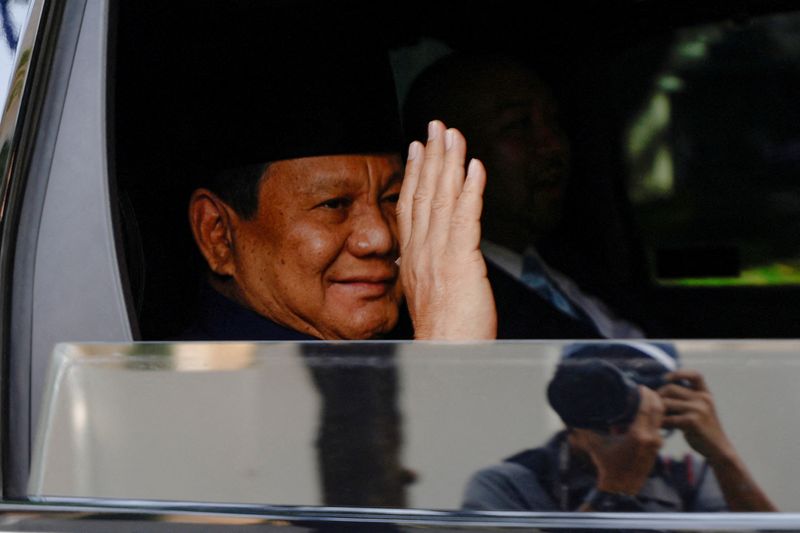By Ananda Teresia and Stefanno Sulaiman
Welcome to Jakarta! The bustling capital city of Indonesia witnessed a historic moment as Prabowo Subianto, at 73 years old, took over as the president of the world’s third-largest democracy. With nearly 60% of the vote, Prabowo emerged victorious in the election held on Feb. 14, promising policies like free meals for school children and forming a strong parliamentary coalition over the past nine months.
Dressed in a traditional black hat and navy suit paired with a woven maroon and golden sarong, Prabowo officially became Indonesia’s eighth president in a ceremony at the parliament. In his speech, he emphasized his commitment to be a leader for all Indonesians, regardless of their voting preferences. He acknowledged internal issues such as corruption, malnutrition, lack of good jobs, and neglected schools that need urgent attention.
Accompanied by his running mate, Gibran Rakabuming Raka, the eldest son of outgoing President Joko “Jokowi” Widodo, Prabowo made his way to the presidential palace amidst a festival-like atmosphere. Supporters lined the streets, waving flags and holding posters of the incoming leader. The transition of power was marked by flower boards congratulating Prabowo and Gibran while expressing gratitude to Jokowi for his decade-long tenure.
As Prabowo and Gibran stopped at multiple stages on their way to the palace, Jokowi supporters bid farewell to their beloved leader. The atmosphere was a mix of nostalgia for the past achievements and optimism for the new administration. Anneta Yuniar, a spectator, expressed her admiration for both Jokowi and Prabowo, highlighting the importance of continuity in development.
Prabowo’s presidency comes at a crucial moment for Indonesia, a nation of 280 million people. While Jokowi’s tenure saw economic growth and infrastructure development, criticisms about patronage politics and integrity in state institutions have raised concerns. Prabowo’s ambitious goals include accelerating economic growth, achieving self-sufficiency in staple production, and enhancing Indonesia’s global presence.
The inauguration was not without controversy, as past allegations against Prabowo for human rights abuses and involvement in student kidnappings resurfaced. Despite denials from Prabowo, human rights advocates remain vigilant about the country’s democratic trajectory. The presence of foreign dignitaries, including China’s Vice President and the U.S. Ambassador to the U.N., underscores the international significance of Indonesia’s leadership transition.
As Prabowo embarks on his journey as Indonesia’s new president, the nation watches with hope and anticipation for a future marked by progress, prosperity, and stability.


